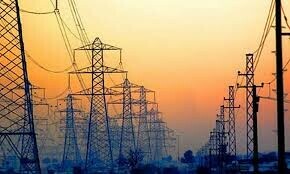
KARACHI: Scheduled banks have invested massively in government papers which accounts for 82 per cent of the entire treasury bills and 89 per cent of Islamic Sukuk bonds.
The State Bank issued a report on Monday explaining investment pattern of scheduled banks, and indicating their reluctance to lending activities which is the actual role of banks.
The banks have been making profits without indulging in banking services; while the government provides easy profits on investment in securities.
According to the State Bank, scheduled banks held treasury bills, Pakistan Investment Bonds and Ijara Sukuk worth Rs2.7 trillion till end of December 2011.
Out of this total, banks held treasury bills worth Rs2.073 billion (82.4 per cent of entire t-bills) while the rest (Rs442 billion) was held by non-banks and corporate sector.
Banks held Rs472 billion of PIBs while non-banks held Rs410 billion.
Scheduled banks also bought Ijara Sukuk worth 251 billion, out of the total issued Ijara of Rs282 billion.
A majority of Ijara Sukuk were held by Islamic banks and they demand more Sukuk to invest their liquidity on the pattern of conventional banks for the last four to five years.
Both conventional as well as Islamic banks have been making investment in government papers, avoiding involvement in risk-taking banking business by lending to the private sector.
In a number of reports, the State Bank has indicated that banks were reluctant to provide loans to private sector while the Central Bank also urged banks to review their role and bring new banking products for trade and industry as well as agriculture.
However, the cash-starved government failed to improve its revenue position.
The shortfall is being met through borrowing from commercial banks which is not only costly but also deprives the real economic sector of the benefits of cheaper money.
The government borrowing also raises cost of money for the private sector, and ultimately it slows down economic activities.
To avoid direct borrowing from State Bank on large scale, the government has given this task to State Bank to bring liquidity through the commercial banks.
It injects Rs270 billion into the banking system for one week and the banks invest this money by purchasing treasury bills.
However, despite this injection and direct borrowing from State Bank, the government is facing a massive fiscal deficit that could be around 7 per cent at the end of the current fiscal year.
The IMF in its latest report indicated that the fiscal deficit for the current year could be 7 per cent of the GDP.
This could be a nightmare for economic managers and stakeholders, including general public, as inflation is bound to increase since government will print more money to meet the fiscal gap.












































Dear visitor, the comments section is undergoing an overhaul and will return soon.